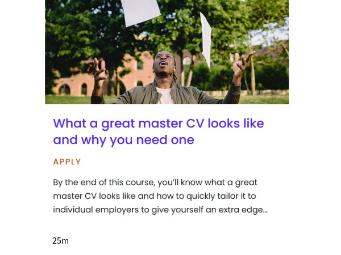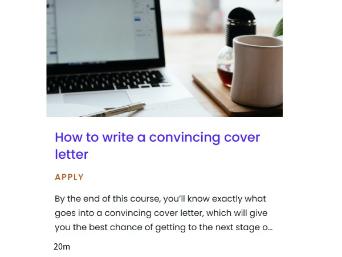Basic principles
- CVs for the UK job market are typically no longer than two sides of A4
- Use a professional font eg Arial, size 10-12
- Use clear section headings
- Avoid too much text; don't adjust margins
- Keep sentences concise and factual. Bulleted points make it easy to read
- List education and employment in reverse chronological order
- Proofread carefully to check no grammatical or spelling errors
- Include a covering letter, unless the job advertisement says differently
How to make your CV stand out
- Avoid using the same CV for every job application. Tailor to the specific job by highlighting relevant skills and experience
- Incorporate key words from the job description - this is important if the recruiter uses screening software
- For speculative applications, focus on the skills the employer is likely to need
- Show how you delivered results; don't just describe your responsibilities
- Use strong action verbs eg, coordinated, achieved, liaised, initiated
- Highlight your degree with relevant modules, projects and dissertations
Choosing the right format
There are different ways you can arrange your experience, skills and achievements, so consider which CV format will suit your current circumstances and career aims.
Learn more here:
Best CV examples | Boost your job search | Prospects.ac.uk
Useful resources
How to write a CV | Transform you job search | Prospects.ac.uk
How long should a CV be? CV FAQs for graduates | targetjobs
Prefer an interactive e-learning course?
Click on the image below to set up your targetjobs account to access this and other Pathway courses


